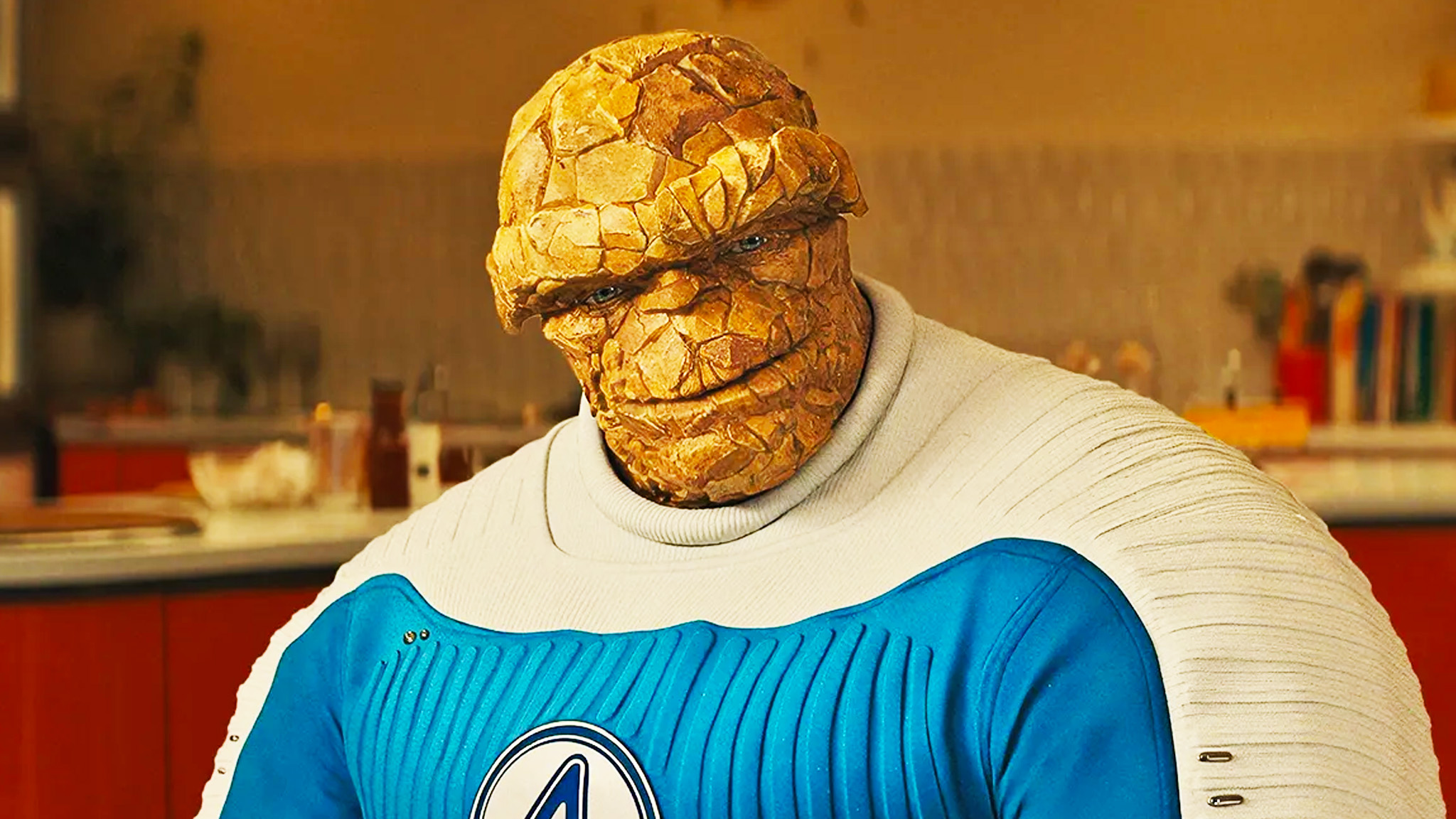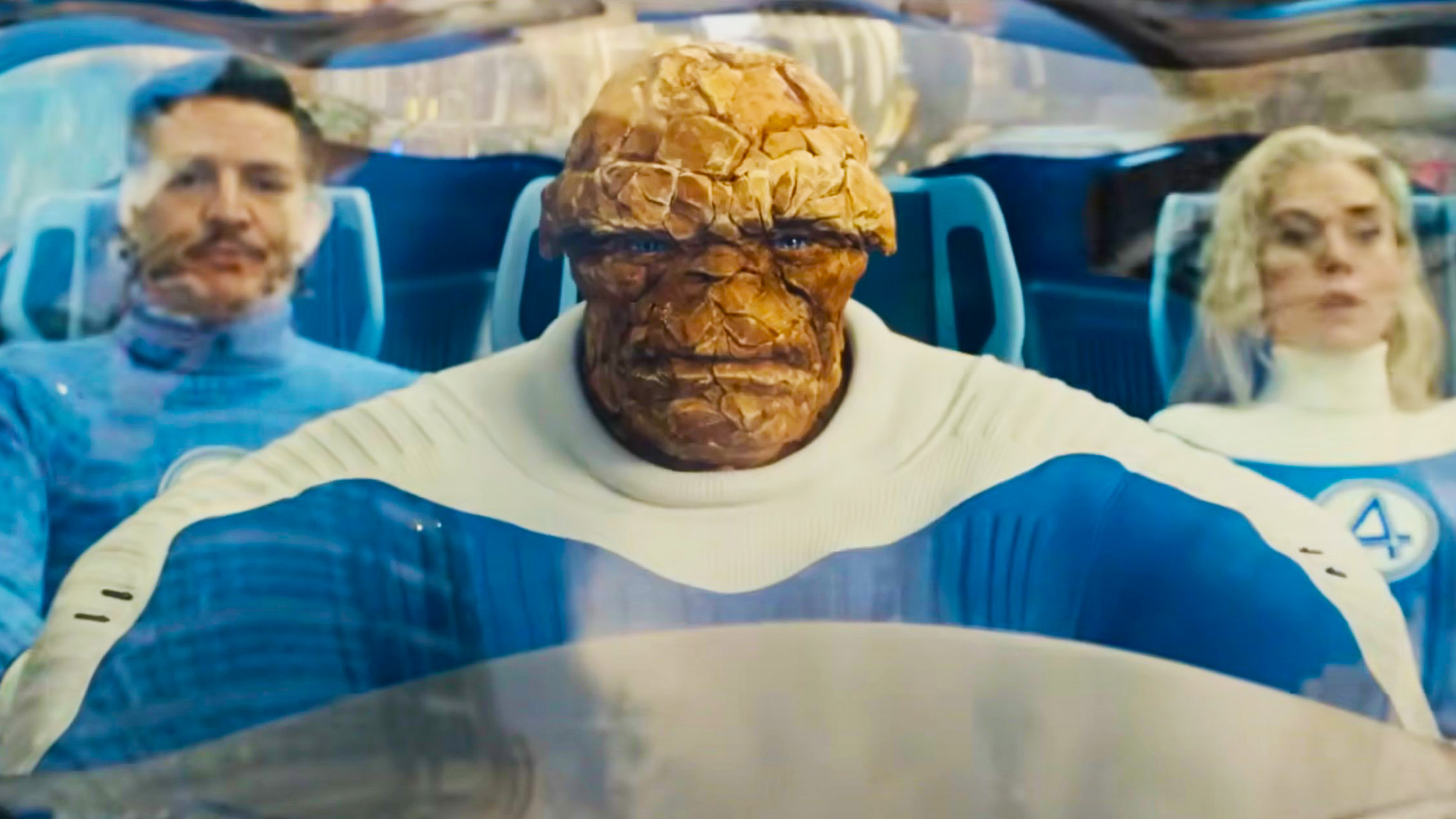
This weekend, the release of Fantastic Four: First Steps sparked a wave of anticipation among viewers. Cinema-goers rushed to catch a glimpse of Marvel’s First Family making their debut in the Marvel Cinematic Universe, eager to see director Matt Shakman breathe life into Reed, Sue, Johnny, and Ben. A significant part of the conversation surrounding the film focused on its 1960s retro aesthetic, exceptional performances, and faithful representation of comic book elements. Critics particularly appreciated the character interactions, plot, and heartwarming scenes that encapsulated the unique spirit of the Fantastic Four as a family. However, amidst all the positive reviews and insightful criticism, one crucial aspect appeared to be overlooked in public discussions – an oversight that had a profound effect on the film’s central message.
The small aspect you might overlook is actually crucial for grasping the core theme of “Fantastic Four: First Steps“, particularly concerning Ben Grimm. It eloquently illustrates the movie’s dedication to portraying its legendary characters as more than just their superpowers, delving into their humanity.
The Film Deliberately Avoids Codenames, Especially Ben’s

One intriguing yet often unnoticed feature of the movie “Fantastic Four: First Steps” is that none of the characters have superhero aliases. Instead, Reed Richards remains Reed, Sue Storm stays as Sue, Johnny Storm is simply Johnny, and not once does he go by Human Torch. This intentional decision goes beyond mere scriptwriting or direction; it’s a fundamental aspect that reinforces the film’s deeper themes. By continually addressing the characters by their birth names, the movie underscores their human nature over their extraordinary powers. These individuals are primarily scientists, family members, and friends, dealing with the unparalleled responsibility of protecting Earth. This deliberate choice takes on greater importance when considering Ben Grimm – his character development is particularly poignant because he’s not referred to as anything other than Ben.
In this movie, Ben Grimm is never explicitly labeled “The Thing.” This isn’t an accident; it’s a deliberate choice meant to redefine the character for both the story and viewers. Even after his transformation, everyone continues to call him by his name, Ben. Reed Richards still addresses him as Ben, Sue Storm calls him the same, and even casual passersby on his regular walks refer to him simply as Ben. The local school kids admire him, asking him to demonstrate his immense power for their amusement. They never seem frightened of his appearance or view him as anything more than a hero in their eyes.
A key aspect of this point is that in the comics and earlier versions, Ben’s transformation frequently results in him being quickly identified and categorized based on his new, monstrous form. He becomes known as “The Thing,” a being distinct from his previous self, often leading to feelings of isolation and self-pity. However, First Steps skillfully and effectively challenges this convention.
The film emphasizes that despite Ben’s remarkable physical transformation, his essential humanity and identity remain unchanged, both in the eyes of those who care for him and in his own mind. Instead of dwelling on his altered appearance, Ben continues to live life as Ben Grimm, without any reference to it. This suggests that he is not a monstrous alien creature but remains the same loyal, brave, and compassionate man he has always been. The film’s decision to avoid giving him a codename serves as a recurring, subtle reminder of its central theme: although their powers are transformative, they do not erase the core qualities that define the Fantastic Four as individuals. This choice underscores the film’s message about acceptance, not just self-acceptance, but also the acceptance by those closest to us, making Ben’s journey one of integration rather than isolation.
Ben Grimm’s Relationship With Rachel Rozman Is Key To His Enduring Humanity

The movie deeply emphasizes Ben Grimm’s portrayal as a human character, and one touching instance of this is his bond with the neighborhood elementary school teacher, Rachel Rozman (played by Natasha Lyonne). This isn’t a casual fling; it’s a heartfelt relationship that develops years following Ben’s transformation. Rachel has only encountered Ben in his non-human form and never as the man he was four years earlier. Their affection and acceptance towards each other are unwavering, and they seldom discuss his appearance. Instead, they are just Ben and Rachel – two individuals navigating their feelings for one another. This relationship underscores Ben’s humanity and shifts the narrative away from the usual tale of tragic solitude typically linked to his comic book character.
In the company of Rachel, Ben Grimm transforms from merely being a member of a superhero team to an individual capable of experiencing emotions like love and intimacy in his new form. This aspect of him adds a touch of humanity that his relationships with his family can’t fully capture, as it’s unquestionable that the rest of the Fantastic Four embrace and love him regardless of his transformation. Rachel’s consistent affection towards Ben sends a strong signal: Ben Grimm remains lovable, worthy of happiness, and undeniably human at heart.
The recurring elements like Ben being called by his given name and his heartfelt bond with Rachel are not mere subplots; they form the foundation of the film’s empathetic portrayal of Ben Grimm, making him one of the most relatable and authentic characters within the cast, despite his tough exterior.
https://comicbook.com/movies/news/mcu-new-movies-tv-shows-set-up-fantastic-four-first-steps/embed/#
Read More
- How to Get the Bloodfeather Set in Enshrouded
- 4 TV Shows To Watch While You Wait for Wednesday Season 3
- The Pitt Season 2, Episode 7 Recap: Abbot’s Return To PTMC Shakes Things Up
- Gold Rate Forecast
- Every Targaryen Death in Game of Thrones, House of the Dragon & AKOTSK, Ranked
- Best Thanos Comics (September 2025)
- Goat 2 Release Date Estimate, News & Updates
- Best Controller Settings for ARC Raiders
- Where Winds Meet: How To Defeat Shadow Puppeteer (Boss Guide)
- One of the Best EA Games Ever Is Now Less Than $2 for a Limited Time
2025-07-28 23:42